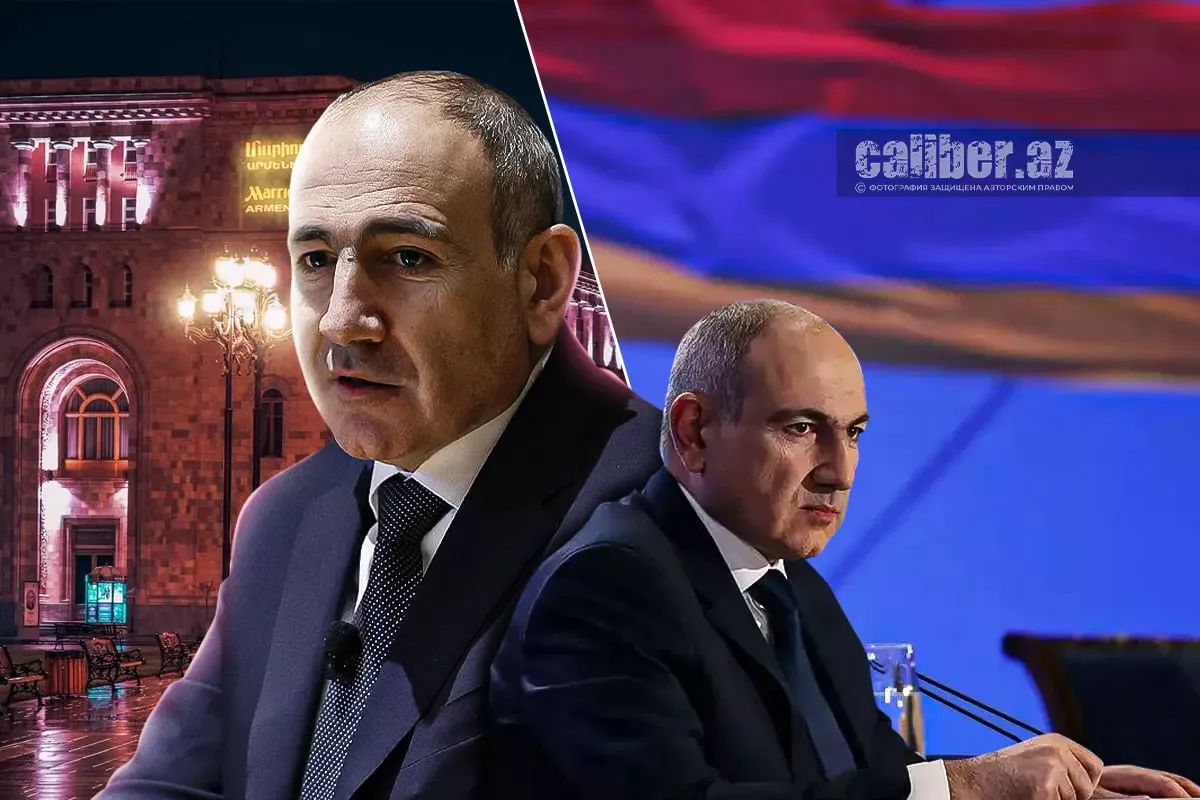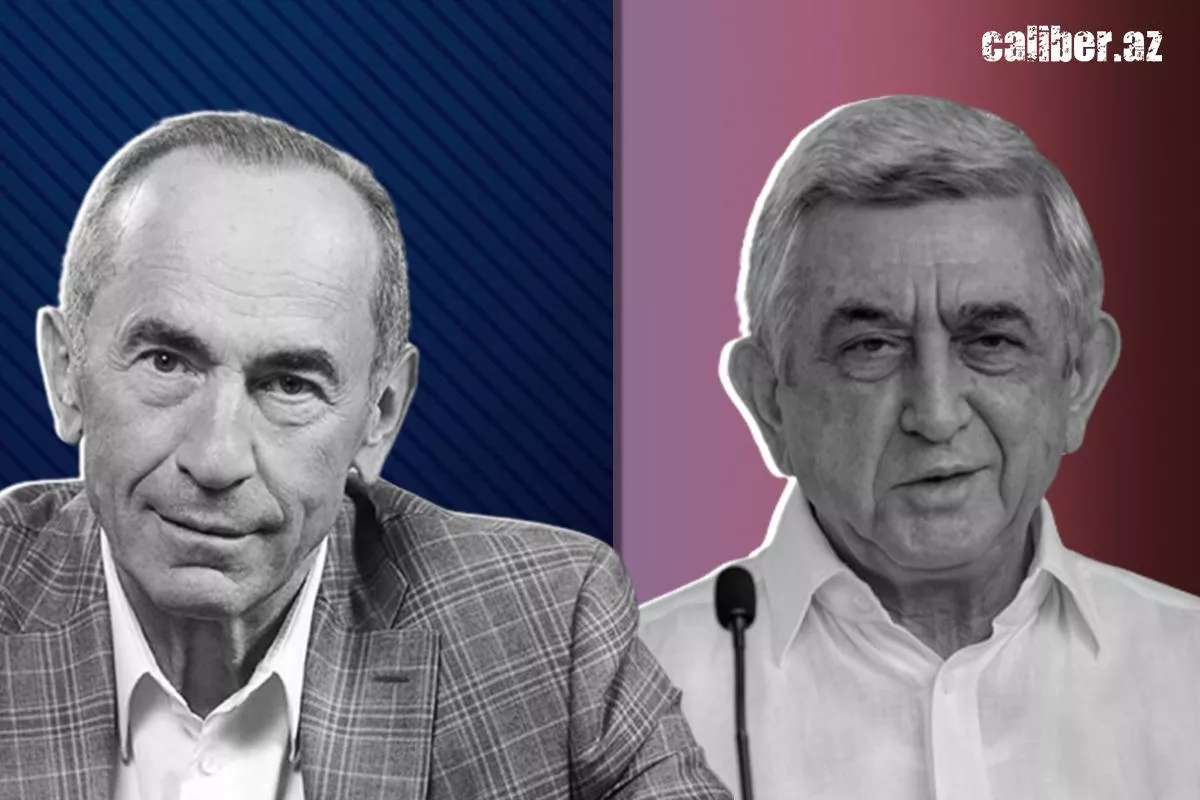Pashinyan anathematised Armenian separatism in Karabakh Yerevan is “crushing” the Soviet legacy
In a social media post marking the 35th anniversary of the adoption of Armenia’s Declaration of Independence, Prime Minister Nikol Pashinyan highlighted key points and outlined the current priorities of the country’s political agenda.
In particular, the Prime Minister shared his views on the Declaration of Independence, adopted on August 23, 1990, by the Supreme Council of the Armenian SSR, the utopian ideology of the USSR, and the causes of the 44-day war in the fall of 2020, emphasizing the inadmissibility of continuing the “Karabakh movement” (separatism – Ed.).
Pashinyan also noted that the Declaration of Independence reflected the collective sentiments of the political and intellectual elite active in Armenia at the time of its adoption, and bore the imprint of the “Karabakh movement” having reached its peak, which ultimately influenced the formation of the independent Republic of Armenia.
“…The key ideological provisions of the Declaration were contradictory and reflected the model of our collective patriotism that the Soviet Union gradually but consistently instilled in us from the 1950s, under the conditions of the establishment of the ‘Iron Curtain’ and the beginning of the ‘Cold War.’ The model of patriotism that the Soviet Union shaped for us, Armenians, reflected the southwest-oriented ambitions of the USSR—a state that had emerged victorious in World War II and had entered into conflict with the North Atlantic Alliance,” he wrote.

According to Pashinyan, it was precisely this ideology, imposed over decades, that led to the “Karabakh movement,” becoming an obstacle to Armenia’s real independence.
“…Continuing the Karabakh movement is unacceptable, as it would mean the destruction of the independence of the Republic of Armenia,” Pashinyan emphasized.
Essentially, the Armenian Prime Minister reinforced the point he recently made to the media following a government session: “Neither in theory nor in practice is peace possible without abandoning the 'Karabakh movement'.” He expressed a similar position from the podium of the National Assembly, stating that he intends to lead Armenia along this course.
At this point, we will slightly deviate from the main topic and recall that the origins of the Karabakh separatism, which began in 1988, were driven by proponents of Armenian fascism such as Zori Balayan, Silva Kaputikyan, Igor Muradyan, and Levon Ter-Petrosyan. Later, figures including Robert Kocharyan, Serzh Sargsyan, Vazgen Sargsyan, as well as ASALA terrorist member Monte Melkonyan, joined the movement, committing numerous violent acts against the peaceful Azerbaijani population.

Even today in Armenia, as the issue of peace is on the agenda—confirmed by the initialing in Washington on August 8 of the agreed text of the “Agreement on the Establishment of Peace and Interstate Relations between the Republic of Azerbaijan and the Republic of Armenia”—there are those who make considerable efforts to incite revanchist sentiments within Armenian society.
In this context, Pashinyan’s strong statements on the inadmissibility of continuing the “Karabakh movement” should be interpreted as a strong message to all supporters of another military confrontation with Azerbaijan.
On the other hand, this is a message to the entire international community that the author of the “real Armenia” concept—according to which Karabakh is recognized as the legitimate territory of Azerbaijan—intends to firmly follow a course whose primary goal is the establishment of lasting peace between the two countries and in the region as a whole.
Pashinyan’s efforts are also aimed at building good-neighbourly relations with regional players, which remains one of Yerevan’s policy priorities today. The Prime Minister touched on this aspect in his recent social media post as well.
“We have adopted a strategy to preserve Armenia’s independence and turn this independence into reality, and the expression of this strategy is the ideology of ‘Real Armenia,’ under conditions that would make peace between Armenia and Azerbaijan possible, under conditions that would make a genuine dialogue with Türkiye possible, under conditions in which our relations with Georgia and the Islamic Republic of Iran should deepen, and under conditions in which we become a real and interesting partner for the world,” he wrote.
Touching on the topic of the Second Karabakh War, the Prime Minister asked: “Why did Armenia, and I personally, not make concessions in September 2020, when there was a theoretical possibility to avoid the 44-day war?”

According to him, the main reason was that such concessions would have disproportionately increased threats and dependencies, which could have led to the loss of the country’s independence and statehood. And here he is indeed correct: Pashinyan’s predecessors had placed Armenia in a position of subservience to external actors who did not allow Yerevan to deviate from the ideology of “Miatsum.”
But despite the crushing defeat in the 44-day war, Pashinyan not only managed to remain in power, but has also steadily guided Armenia toward the Washington agreements, even entering into a sharp confrontation with the Armenian Church. By recognizing Karabakh as part of Azerbaijan according to the “Real Armenia” concept, which he deliberately promotes to the public, the Armenian Prime Minister is breaking the stereotype of Karabakh supposedly belonging to Armenia—a notion whose foundations were laid back in the late Soviet era.
In summary, today’s post by Pashinyan is a clear signal that peace between Azerbaijan and Armenia is closer than ever, and the Prime Minister’s words about the beginning of a peaceful and prosperous life for the republic are nothing more than a demonstration of the Armenian leadership’s commitment to a peaceful agenda with Baku and the Washington agreements.








